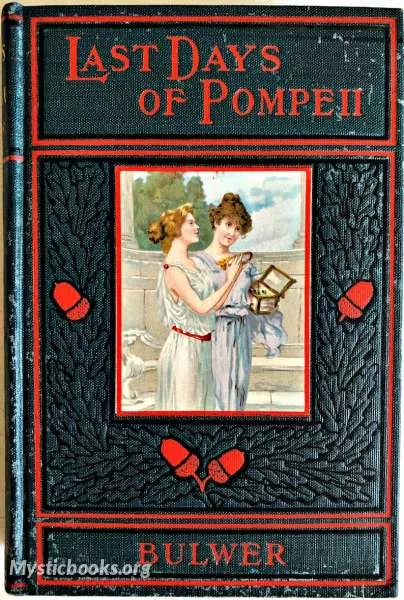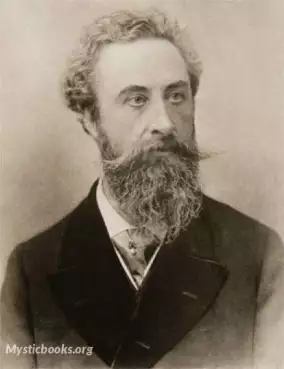
Last Days of Pompeii
by Edward George Bulwer-Lytton
'Last Days of Pompeii' Summary
Pompeii, A.D. 79. Athenian nobleman Glaucus arrives in the bustling and gaudy Roman town and quickly falls in love with the beautiful Greek Ione. Ione's former guardian, the malevolent Egyptian sorcerer Arbaces, has designs on Ione and sets out to destroy their budding happiness. Arbaces has already ruined Ione's sensitive brother Apaecides by luring him to join the vice-ridden priesthood of Isis. The blind slave Nydia is rescued from her abusive owners, Burbo and Stratonice, by Glaucus, for whom she secretly pines. Arbaces horrifies Ione by declaring his love for her, and flying into a rage when she refuses him. Glaucus and Apaecides rescue her from his grip, but Arbaces is struck down by an earthquake, a sign of Vesuvius' coming eruption.
Glaucus and Ione exult in their love, much to Nydia's torment, while Apaecides finds a new religion in Christianity. Nydia unwittingly helps Julia, a rich young woman who has eyes for Glaucus, obtain a love potion from Arbaces to win Glaucus's love. But the love potion is really a poison that will turn Glaucus mad. Nydia steals the potion and administers it; Glaucus drinks only a small amount and begins raving wildly. Apaecides and Olinthus, an early Christian, determine to publicly reveal the deception of the cult of Isis. Arbaces, recovered from his wounds, overhears and stabs Apaecides to death; he then pins the crime on Glaucus, who has stumbled onto the scene. Arbaces has himself declared the legal guardian of Ione, who is convinced that Arbaces is her brother's murderer, and imprisons her at his mansion. He also imprisons Nydia, who discovers that there is an eyewitness to the murder who can prove Glaucus's innocence—the priest Calenus, who is yet a third prisoner of Arbaces. She smuggles a letter to Glaucus's friend Sallust, begging him to rescue them.
Glaucus is convicted of the murder of Apaecides, Olinthus of heresy, and their sentence is to be fed to wild cats in the amphitheatre. All Pompeii gathers in the amphitheatre for the bloody gladiatorial games. Just as Glaucus is led into the arena with the lion–who, distressed by awareness of the coming eruption, spares his life and returns to his cage—Sallust bursts into the arena and reveals Arbaces's plot. The crowd demands that Arbaces be thrown to the lion, but it is too late: Vesuvius begins to erupt. Ash and stone rain down, causing mass panic. Glaucus rescues Ione from the house of Arbaces, but in the chaotic streets they meet Arbaces, who tries to seize Ione but is killed by a lightning strike. Nydia leads Glaucus and Ione to safety on a ship in the Bay of Naples, as because of her blindness she used to going about in utter darkness while sighted people are made helpless in the cloud of volcanic dust. The next morning she commits suicide by quietly slipping into the sea; death is preferable to the agony of her unrequited love for Glaucus.
Ten years pass, and Glaucus writes to Sallust, now living in Rome, of his and Ione's happiness in Athens. They have built Nydia a tomb and adopted Christianity.
Book Details
Authors

Edward George Bulwer-Lytton
England
Bulwer-Lytton's literary career began in 1820 with the publication of a book of poems and spanned much of the 19th century. He wrote in a variety of genres, including historical fiction, mystery, roma...
Books by Edward George Bulwer-LyttonDownload eBooks
Listen/Download Audiobook
- Select Speed
Related books

Fables de La Fontaine, livre 06 by Jean de La Fontaine
Dans ce livre sixième comme dans tous les autres livres des Fables de La Fontaine, vous serez à même de constater la fine observation des éternels com...

Voice Of The Banjo by Paul Laurence Dunbar
Voice of the Banjo is a collection of poems by Paul Laurence Dunbar that explores the experiences and perspectives of African Americans in the late 19...

Christmas Stories from French and Spanish Writers by Benito Pérez Galdós
This book is a collection of fifteen short stories by various French and Spanish writers. Each story captures the spirit of Christmas, exploring theme...

The Indians in the Woods by Janet Lewis
In the heart of the untamed wilderness, a haunting secret awaits discovery, unraveling the intricate tapestry of human emotions and the clash of cultu...

The Indian Today by Charles Eastman
Based in part upon the author's own observations and personal knowledge, it was the aim of the book to set forth the status and outlook of the North A...

Noughts and Crosses: Stories, Studies and Sketches by Sir Arthur Thomas Quiller-Couch
This collection of short stories and essays by Sir Arthur Thomas Quiller-Couch, known by his pen name 'Q,' showcases his diverse literary talents. Spa...

Children of the Ghetto by Israel Zangwill
In this 1892 novel of London's Jewish East End, Israel Zangwill sets the apparently irrational and decidedly indecorous religious practices of transpl...

Legends of Old Honolulu by William Drake Westervelt
The history and culture of Honolulu are the main topics covered in this book, which contains several myths and stories gathered by Dr. Westervelt from...

Lifted Masks by Susan Glaspell
In this collection of short stories, Susan Glaspell examines the unique character of America and its people.

Kai Lung's Golden Hours by Ernest Bramah
Kai Lung's Golden Hours is a collection of whimsical and insightful stories told by a cunning Chinese storyteller named Kai Lung. Facing a potential s...
Reviews for Last Days of Pompeii
No reviews posted or approved, yet...